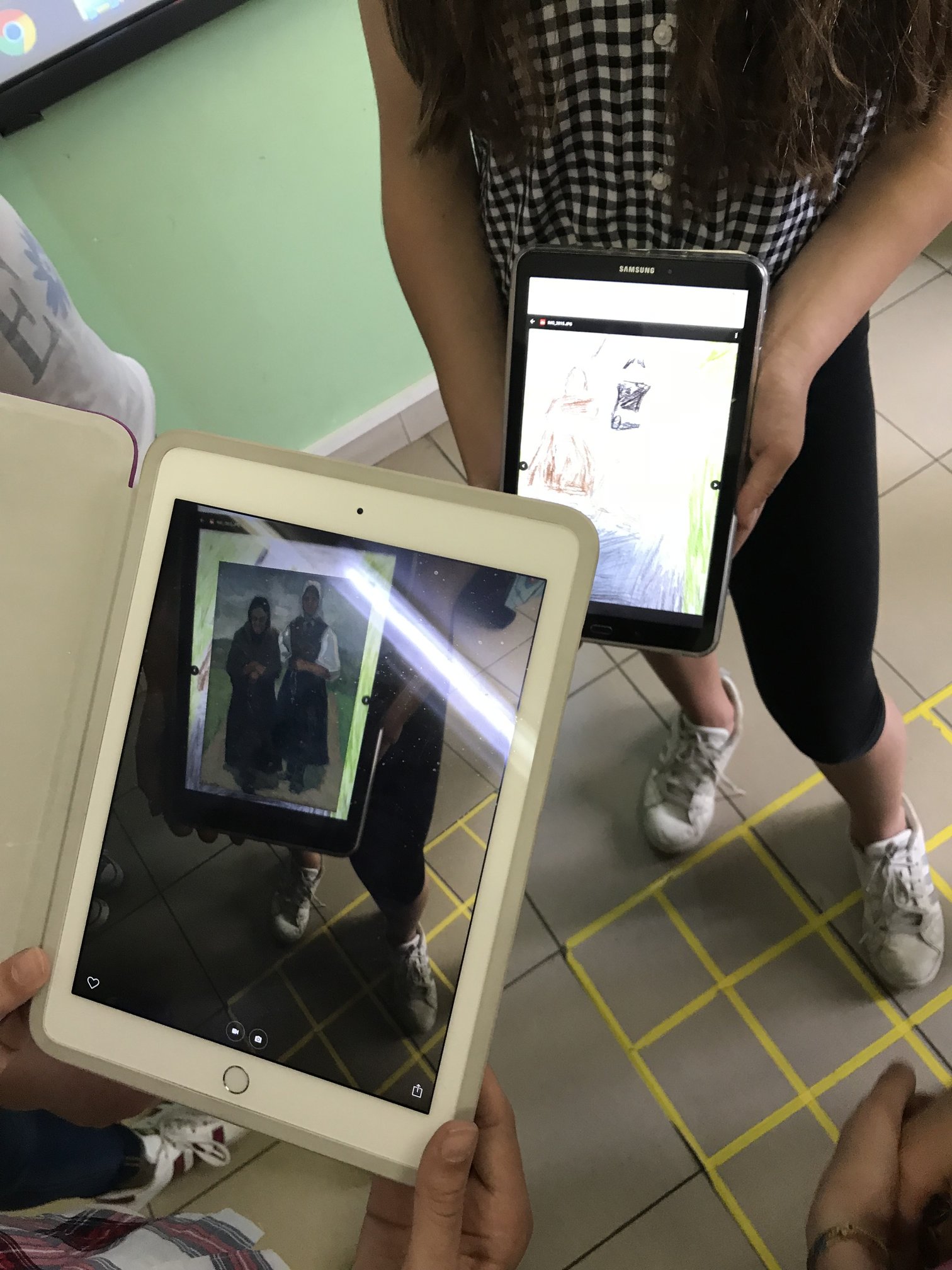OUTPUTS AND EVALUATION
It hasn't been planned a final project output but each task has its own final cooperative output visible in the twinspace pages.
Feedback by Silvana - Roletto school
-
The project was based on the use of techonolgies to develop creativity and on tasks that have involved cooperation between the partners.
- All the tasks needed the the cooperation of the partners in order to be fulfilled starting from the first activity in which students were asked to guess the name of their partners till the last coding activity with Dash robot.
- Activities have been aimed to "create" something together and share expertise as chidlren of different ages worked together ( from 9 to 13 years old).
- Students have learnt how to use new tools such as FLIPGRID, METAVERSE, STOP MOTION, BLOCKY and used tools they already knew, such as Qrs and AURASMA, in amore creative and useful way..
- We have also used " pen and paper" for creating the logo, making portraits and works of Art developing "brain and manual technology" and project based work.
- All the activities have been included into the Art, English, Math (robotics) and ICT curricula of the school involved.

Feedback by Petra - Prague school
- students' creativity has raised during the project - for example when they were creating Christmas stop motion they didn't know what to do, they didn't have any ideas, I (as a teacher) had to help them (we did some branstorming activities in the clasroom), while at the end of the project when we were creating a farewell videos they were full of ideas and I almost didn't have to help them.
- when we were evaluating the project (this time we tried a moderated dissussion in the classroom) students stated they liked that they could work in groups, that they could choose what they will do, that they were working together with their friends from abroad and to my surprise the also reflected that they worked with younger children and that even with them the work went smoothly. They also liked that they worked with tablets and tried new things with them.
Feedback by Vincenzo - Giaveno school - Italy
- In my school, unfortunaly, we didn't have lot of possibilities about using technologies: just a simple Internet connection but a very small number of devices. However the project's been very important for the students. They learnt some fundamental aspects: the web 2.0 potential and especially the importance of working together, in their classroom groups and with european partners.
- They had the main demostration of this during the "collaborative logo activity": they have thought something about a final logo picture but they had no idea about a cooperative creation of the image with other friends so far in Europe.
- At the beginning they didn't know what we can do with tablets, smartphones and computers. They just used them to play. Thanks to this project children have learnt many different apps to learn, to expand knowledges, to keep in touch, really or virtually, with other partners, all in order to do something together, to think in a cooperative way and to achieve a common goal.
- Students' families have known something important too: the etwinning reality and potential, the existence of interesting web tools about learning and integration, some new alternative paths to increase knowledges and create a new vision of school.
- With FLIPGRID students have found a very interesting way to get involved in simple interviews in English ! They needed it to become more confident in an important foreign language and in its pronunciation.
Feedback by Loredana - Lorelay Primary School - Iasi, Romania
- This project was a challenge for all of us, me, as a teacher, and the pupils, because it involved working with a lot of programs we didn’t know before. So, I had to learn how to do it first, then explain to the pupils.
- It was the kids’ favorite project, because it involved tablets or smartphones. They are not allowed to have them in school and now they had the opportunity to learn that they can use them for more than just play. They liked so much making movies with Stop Motion, for example, that they invented all kind of theme and they did different thematic movies, working in small groups.
- One of the benefits was that the pupils got to cooperate and learn to work with technology from an early age (they were 9 and 10 years old). After cooperating between them in class, they organized activities with their younger schoolmates and teach them what they knew.
- The pupils were very enthusiastic and they wanted to see the cooperative work of the other partner friends, all the time. The ideas they saw gave them new ideas of working.
- The parents liked very much the idea of the project and the results. They also apreciated the opening and interest of their kids to other cultures.
- Due to this project, our school decided to supply the school with more computers and we decided to integrate more of these learnt programs in our lessons.